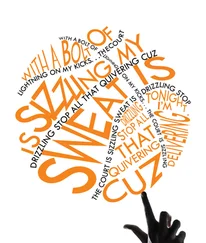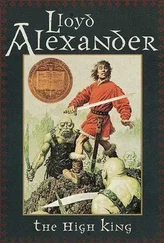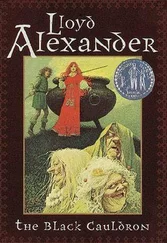V. S. Alexander
THE TASTER
To James E. Gunn, who lit the fire
Berlin, 2013
Who killed Adolf Hitler? The answer lies within these pages. The circumstances surrounding his death have been disputed since 1945, but I know the truth. I was there.
Now I’m a childless old widow left alone in a house filled with memories as bitter as ashes. The linden trees in spring, the blue lakes in summer, bring me no joy.
I, Magda Ritter, was one of fifteen women who tasted Hitler’s food. He was obsessively concerned about being poisoned by the Allies or traitors.
After the war, no one, except my husband, knew what I did. I didn’t talk about it. I couldn’t talk about it. But the secrets I’ve held for so many years need to be released from their inner prison. I don’t have much longer to live.
I knew Hitler. I watched as he walked the halls of his mountain retreat, the Berghof, and followed him through the maze of the Wolf’s Lair, his headquarters in East Prussia. I was near him in his final day in the tomb-like depths of his Berlin bunker. Often he was surrounded by an entourage of admirers, his head bobbing like a buoy on the sea.
Why didn’t anyone kill Hitler before he died in the bunker? A trick of fate? His uncanny ability to avoid death? Assassination plots were hatched and, of those, many were aborted. Only one succeeded in injuring the Führer. That attempt only reinforced his belief in providence—his divine right to rule as he saw fit.
My first recollection of him was at a 1932 Party rally in Berlin. I was fifteen at the time. He stood on a wooden platform and spoke to a small crowd that grew larger by the minute as word spread of his appearance at Potsdamer Platz. Rain spit from gray clouds that November day, but each word he spoke exploded in the air until the crowd glowed with heat and rage at the enemies of the German people. With every beat of his fist to his breast, the sky shook. He wore a brown uniform with a black leather belt stretched across his chest. The red, white and black swastika patch was prominently displayed on his left arm. A pistol hung at his side. He was not particularly handsome, but his eyes held you in their powerful grip. Rumors circulated he wanted to be an architect or an artist, but I always imagined he would have been a better storyteller; if only he would have let his imagination play out in words rather than in malevolence.
He mesmerized a nation, inducing euphoric riots among those who believed in the shining new order of National Socialism. But not all of us worshiped him as the savior of Germany. Certainly not all “good Germans.” Was my nation guilty of aiding the most notorious dictator the world has ever known?
A cult has grown up around Hitler, in death as large as when he was alive. Its members are fascinated by the horror and destruction he cast upon the world like the devil. They are either fanatical worshipers of the Führer or students of human psychology who ask, “How could one man be so evil?” Either way, those followers have helped Hitler succeed in his quest to live forever.
I have struggled with the horrific actions perpetrated by the Third Reich and my singular place in history. My story needs to be told. Sometimes the truth overwhelms and horrifies me, like falling endlessly into a darkened pit. But, in the process, I have discovered much about myself and humanity. I have also discovered the cruelty of men who make laws to suit their own purposes.
* * *
Life has punished me and nightmares hound my sleep. There is no escape from the horrors of the past. Perhaps those who read my story will not judge me as harshly as I’ve judged myself.
Astrange fear crept over Berlin in early 1943.
The year before, I had looked up at the sky when air-raid sirens sounded. I saw nothing except high clouds, streaming like white horses’ tails above me. The Allied bombs did little damage and we Germans thought we were safe. By the end of January 1943, my father suspected the prelude to a fiery rain of destruction had begun.
“Magda, you should leave Berlin,” he said at the onset of the bombing. “It’s too dangerous here. You can go to Uncle Willy’s in Berchtesgaden. You’ll be safe there.” My mother agreed.
I wanted no part of their plan because I’d only once, as a child, met my aunt and uncle. Southern Germany seemed a thousand miles away. I loved Berlin and wanted to remain in the small apartment building where we lived in Horst-Wessel-Stadt. Our lives, and everything I’d ever known, were contained on one floor. I wanted to be normal; after all, the war was going well. That’s what the Reich told us.
Everyone in the Stadt believed the neighborhood would be bombed. Many industries lay nearby, including the brake factory where my father worked. One Allied bombing occurred on January 30 at eleven in the morning when Hermann Göring, the Reichsmarschall, gave a speech on the radio. The second occurred later in the day when the Propaganda Minister, Joseph Goebbels, spoke. The Allies had planned their attacks well. Both speeches were interrupted by the raids.
My father was at work for the first, but at home for the second. We had already decided we would gather in the basement during an air raid, along with Frau Horst, who lived on the top floor of our building. We were unaware in those early days what destruction the Allied bombers could wreak, the terrible devastation that could fall from the skies in whistling black clouds of bombs. Hitler said the German people would be protected from such terrors and we believed him. Even the boys I knew who fought in the Wehrmacht held that thought in their hearts. A feeling of destiny propelled us forward.
“We should go to the basement now,” I told my mother when the second attack began. I shouted the same words upstairs to Frau Horst, but added, “Hurry! Hurry!”
The old woman popped her head out of her apartment. “You must help me. I can’t hurry. I’m not as young as I used to be.” I rushed up the stairs to find her holding a pack of cigarettes and a bottle of cognac. I took them from her and we found our way down before the bombs hit. We were used to blackouts. No Allied bombardier could see light coming from our windowless basement. The first blast seemed far away and I was unconcerned.
Frau Horst lit a cigarette and offered my father cognac. Apparently, cigarettes and liquor were the two possessions she would drag to her grave. Bits of dust dropped around us. The old lady pointed to the wooden beams above us and said, “Damn them.” My father nodded halfheartedly. The ancient coal furnace sputtered in the corner, but it couldn’t dispel the icy drafts that poked their way through the room. Our frosty breaths shone under the glare of the bare bulb.
A closer blast rattled our ears and the electricity blinked out. A brilliant orange light flashed overhead, so close we could see its fiery trail through the cracks surrounding the basement door. A dusty cloud swirled down the stairs. Glass shattered somewhere in the house. My father grabbed my mother and me by the shoulders, pulled us forward and covered our heads with his arched chest.
“That was too close,” I said, shaking against my father. Frau Horst sobbed in the corner.
The bombing ended almost as quickly as it had begun and we climbed the darkened stairs back to our apartment. Frau Horst said good evening and left us. My mother opened our door and searched for a candle in the kitchen. Through the window, we saw black smoke mushrooming from a building several blocks away. My mother found a match and struck it.
Читать дальше












